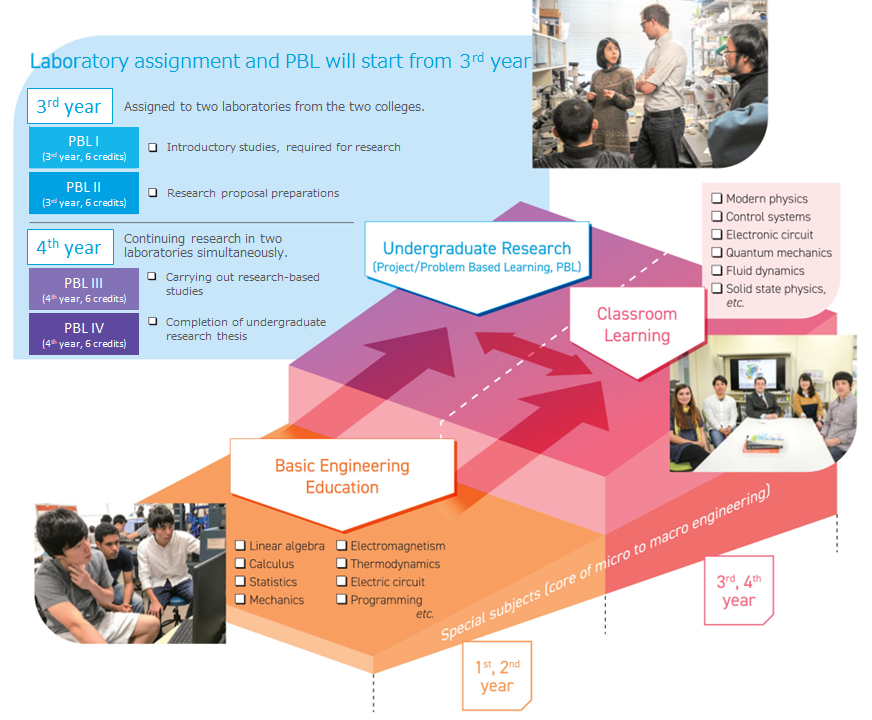Curriculum policy
- To provide and implement a curriculum that emphasizes basic subjects in order to acquire solid fundamental skills in mathematics and physics, which are the basic foundation of engineering fields.
- Fostering core engineering knowledge and skills for a broader perspective of manufacturing from micro to macro.
- Enhance PBL learning approach to resolve engineering problems spontaneously and creatively.
Human resource development through education in the Interdisciplinary Engineering Program
To meet the demand of a sustainable and smart society for future generations, we need to confront challenges in the rapidly changing technologies and problems of the 21st century. Thus, it is necessary to pursue knowledge in various engineering fields with common goals and to utilize this accumulated knowledge systematically that allows for creation and innovation. Our Program of Interdisciplinary Engineering has been designed, to also achieve this goal, in the framework of traditional engineering, ICT and the internet of things (IoT).
A dynamic cross-sectional curriculum from a interdisciplinary perspective has been adopted for this program which encompasses disciplines from both Engineering Sciences and Engineering Systems along with the fundamentals of the natural sciences. Students will be able to receive a comprehensive education in a wide range of fields, beginning with the fundamentals and moving on to applying their knowledge in practice. Thus, the aim of this program is to develop engineers ,who have potential and a broad overall vision, as future leaders of society that will contribute to developing, designing, creating, managing and running the innovative systems that help elevate people’s lives in society.
The First and Second year offer a broad general education, in addition to the basics in Engineering Sciences and Engineering Systems. Classes include Calculus, Linear Algebra, Mechanics, Statistics, etc. These are joined with language classes, such as Japanese and English (for non-native students), and a wide range of Physical Education sports. In the Second year, students can study in classes like Thermodynamics, Electrical circuits, Computer Programming, Experimental classes, among others.
In the third year, assignment of laboratories and problem/project based learning (PBL) will start. Students can be assigned to two laboratories at the same time in the College of Engineering Science or College of Engineering Systems. Students can choose research topics for their undergraduate research from a broad range of interdisciplinary fields, for example, Space Engineering, Power Electronics, Control Systems, Robotics, Energy, Materials, etc.
As a part of class based learning, students will continue to take the core course like Quantum Mechanics, Statistical Physics, Fluid Dynamics, Control System, Electronic Circuit, etc, which provide the foundation of both micro- and macro-engineering. In the fourth year, students will finish their PBL by continuing their research in two laboratories to finish their undergraduate research.
